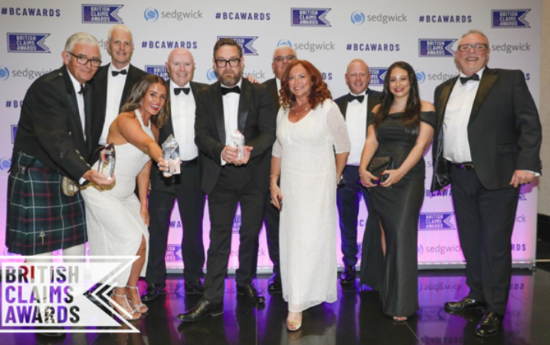Our landscape is changing, presenting opportunities to innovate and partner on impactful solutions through our investments, supplier and broker relationships, the QBE Foundation and QBE Ventures. We can explore ways to co-create solutions to meet the changing needs of our customers, and support communities affected by climate impacts and the net-zero transition.
Through our QBE Foundation partners, we fund projects that support communities in building resilience and adaptation to climate-related weather events, helping to improve disaster preparedness in high-risk areas as part of an orderly transition to a net-zero economy. In addition, our Premiums4Good initiative continues to support programs that address social and environmental needs, often within vulnerable groups.
Our QBE Ventures arm continues to identify digital platforms and leverage Artificial Intelligence (AI) to address the growing need for solutions to streamline operations and enhance the customer experience. Other investments include solutions to manage the financial impacts of weather events or to respond to the aftermath of natural disasters.
To learn more about the QBE Foundation:
To learn more about Premiums4Good:
To learn more about QBE Ventures:
In 2024, our ‘Build Back Better’ initiative in collaboration with Sedgwick won the ‘Outsourced Partner of the Year’ award at the British Claims Awards in London, United Kingdom. This follows winning silver in the Sustainability Initiative of the Year category at the Insurance Times Awards and winning the ESG category at the Insurance Post Claims and Fraud Awards in 2023.
Build Back Better aims to reduce the carbon impact of commercial property insurance repairs – focusing on collaborating to be more sustainable. QBE, in partnership with Sedgwick, set out to identify the right opportunities and then influence the supply chain to accept and implement change. Our joint commitment is to evidence significant reductions in carbon emissions on completion of a commercial property pilot of 50 claims.
Repairing buildings can generate significant carbon emissions, and historically it has been difficult to fully quantify this impact. Sedgwick manage around 10,000 domestic building repairs a year, aiming to maximise restoration, reducing lifecycle emissions by up to 25% and saving around 17.5% in repair costs.
Build Back Better is a great example of the third focus area of QBE's sustainability strategy - partnering for growth through innovative sustainable and impactful solutions.

QBE Europe’s “Minds in Business” initiative is a mental health strategic assessment tool designed to help organisations evaluate and enhance their workplace mental health strategies. Developed in collaboration with the mental health charity Mind, organisational culture specialists Anker & Marsh and resilience experts Petros, this tool is unique in the insurance market. It guides businesses through key areas such as leadership, planning, support, organisational competence and performance evaluation. Upon completion, participants receive a bespoke risk improvement plan and access to a suite of resources aimed at fostering a mentally resilient workforce.
In 2024, QBE won the Risk and Resilience Award at the British Insurance Awards in London for our Minds in Business programme. It serves as a great example of our third sustainability focus area, partner for growth through innovative, sustainable and impactful solutions.

Access to Minds in Business is available through our QRisk online risk management platform available only to QBE customers.
In 2024, QBE was announced as a winner of the 2024 Insurance Technology Impact Awards for the AI solution developed to assist Cyber underwriters. This innovation reflects QBE’s dedication to addressing emerging risks and supporting businesses and communities in a rapidly changing global environment.
The Datos Insight Impact Awards recognise insurers for projects that deliver significant business impact through technology. With only nine winners across four categories, QBE was recognised in the Data category for our Cyber Underwriting AI Assistant.
QBE’s Cyber Underwriting AI Assistant is an innovative solution that leverages generative artificial intelligence (Gen AI) to reimagine underwriting. As cyber risks grow due to increased digitisation and climate-related vulnerabilities, such as disruptions to infrastructure and systems, this solution plays an important role in supporting customers adapt to a net-zero future by addressing risks critical to their operations and sustainability goals.
The Cyber Underwriting team receives a large volume of submissions each year and spends about 40% of their time on manual administrative tasks. By tapping into large language models (LLM) and Gen AI capabilities, the team developed a solution that assisted with the initial risk assessment of cyber liability submissions. The Cyber Underwriting AI Assistant performs initial risk assessments of cyber liability submissions more than 60% faster, enabling underwriters to focus on high-priority submissions and potentially increase GWP through improved submission-quote-bind ratios.
The AI solution has now been adapted for QBE Cyber underwriters in EO and Employee/Workers’ Compensation Underwriters in Asia.

 QBE Re
QBE Re
 Hong Kong
Hong Kong
 India
India
 Macau
Macau
 Mainland China
Mainland China
 Malaysia
Malaysia
 Philippines
Philippines
 Singapore
Singapore
 Vietnam
Vietnam
 Australia
Australia
 New Zealand
New Zealand
 Denmark
Denmark
 France
France
 Germany
Germany
 Italy
Italy
 Netherlands
Netherlands
 Spain
Spain
 Sweden
Sweden
 UK
UK
 United Arab Emirates
United Arab Emirates
 Canada
Canada
 USA
USA
 Pacific Islands
Pacific Islands
 Fiji
Fiji
 Solomon Islands
Solomon Islands
